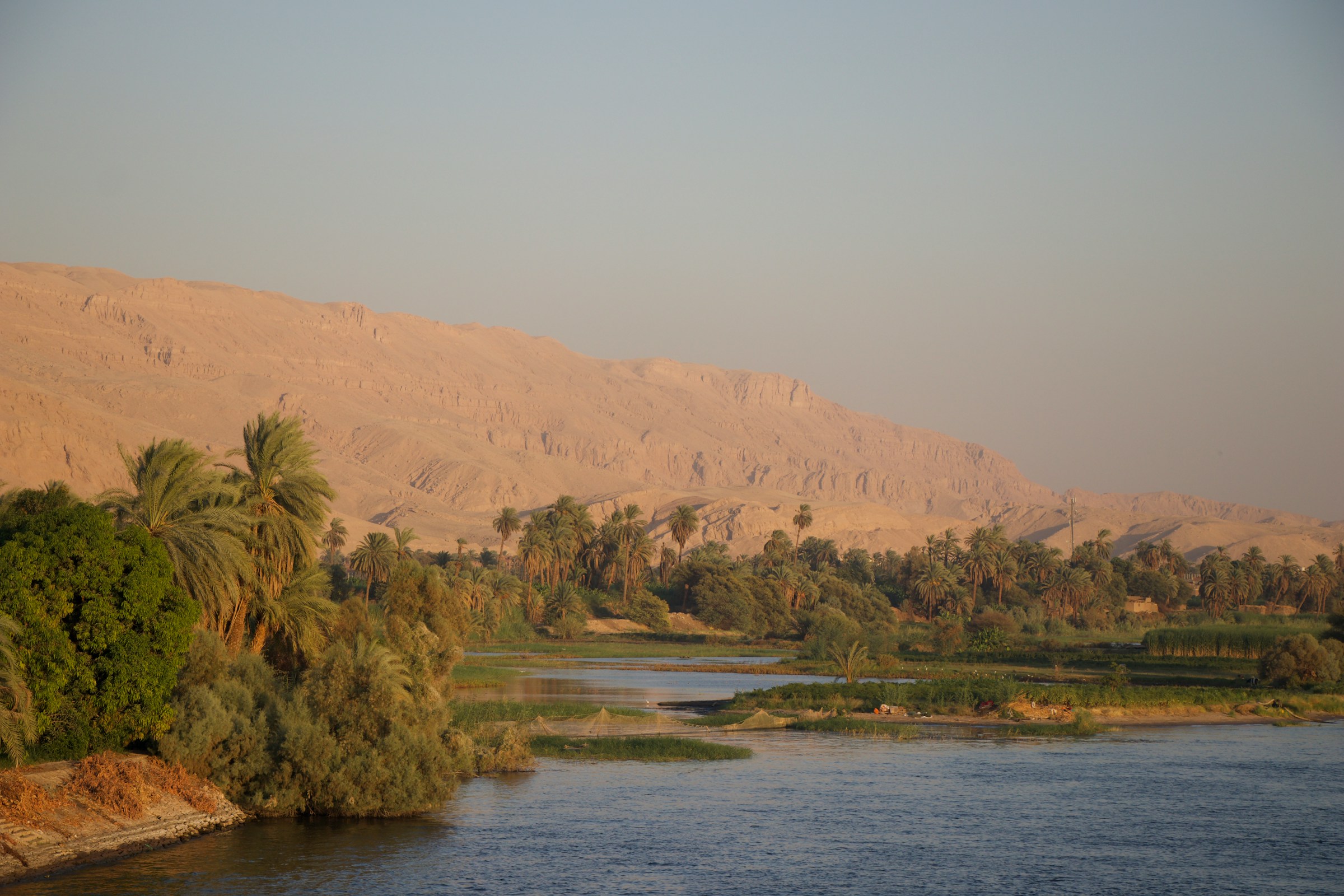Research
 Photo: Banks of the Nile River in Egypt (via Unsplash)
Photo: Banks of the Nile River in Egypt (via Unsplash)
Research activities under the UNESCO Chair on Hydropolitics aim to reflect on political challenges related to water resources. Anchored in social sciences (political science, geography), the Chair adopts an interdisciplinary approach, broadening the perspective to other disciplines as needed. The Chair’s research combines different theoretical and methodological approaches when analysing institutional frameworks, policy processes, or conflict resolution mechanisms at multiple levels. The research programme targets a great diversity of case studies.
Our research is organised in two ways. On the one hand, the Chair members develop different research proposals and projects based on international collaboration.
Ongoing Projects
- Designing Multi-Knowledge Protocols to Transform Transboundary Policies for Hydroclimatic Extremes – DemoTape (2023-2026). EU Water4All call.
- Recognition of Legal Personhood of Watercourses as a Tool for Transboundary Governance (2022-2025). In partnership with the Agence nationale de la recherche, the Agence de l’eau RMC, the Compagnie nationale du Rhône, and the Index Project.
- Transboundary Water Governance in Central America: Achievements and Challenges – The Case of the Sixaola basin (2022-2023). Swiss Leading house for Latin American region.
- Adaptation at Altitude: Taking Action in the Mountains (2020-2024). Funded by Swiss Agency for Development and Cooperation (SDC), in collaboration with the Mountain Research Initiative (MRI), the Consorcio para el desarrollo sostenible de la Ecoregión Andina (CONDESAN), the International Centre for Integrated Mountain Development (ICIMOD), the United Nations Environment Programme (UNEP), Stockholm Environment Institute (SEI), and Zoï Environment Network. This collaborative programme aims to boost the resilience and adaptation of mountain communities in the face of climate change by focusing on four key areas: data, information and monitoring; regional science-policy exchange; knowledge generation and sharing; and policy mainstreaming.
- Dams: Waterflow Regulation in a Fragmented World (2021-Ongoing). The initiative, jointly launched by the Geneva Water Hub and IUCN’s Environmental Law Centre, aims to contribute meaningfully to the current debate on dam’sdam’s management and offer resources to policymakers, researchers, and practitioners. The first step of this initiative is to elaborate on an assessment of the legal tools applicable to dam planning, development, and monitoring. It will include a compendium of references grouping and analysing the main frameworks and principles addressing the challenges of dams.
- Monitoring for International Hydropolitical Tensions [Ongoing proposal]. In collaboration with Oregon State University (OSU), Tufts University, and the International Union for the Conservation of Nature (IUCN). This project aims to combine different approaches, theoretical frameworks, and methodologies to monitor hydropolitical interactions and to identify critical variables that may play a role in the evolution of conflict and cooperation. In particular, the project explores the use of actors’ discourses and practices as a source of information to detect triggers of conflict and cooperation over transboundary waters. The objective is to provide a new systematic, case study and discourse-based approach that complements ongoing global studies using large-N datasets to identify global trends in transboundary water governance and that offers practical guidelines for the design and implementation of water diplomacy initiatives.
Past Projects
- Linked Indicators for Vital Ecosystem Services – LIVES (2013-2018). In partnership with WWF International and the Luc Hoffmann Institute. The LIVES project tested various ways of identifying “linked indicators” for joint governance, planning, and food, energy, and water resource management deployed by institutions responsible for river basin management. The project questions how we combine “hard” science with social science to provide practical and useful knowledge. It aims for improved coherency in river basin planning so that risks are better identified and managed to benefit biodiversity and human well-being.
- Governance and Durability of the European Urban Water Network – InfraGouv (2017-2020). Funded by the Swiss National Science Foundation (SNSF). Europe’s urban water supply and sanitation infrastructure is ageing and entering a phase of accelerated degradation. This deterioration directly impacts government authorities by threatening the quality of the public water supply and putting pressure on local budgetary balances. As such, recent reforms of urban water systems have been confronted by a complexity of governance processes. Therefore, the InfraGouv project aimed to identify the governance conditions favourable to the optimal functioning of European urban water infrastructure.
- Swiss Energy Transition and the Relationship with Europe (2018-2019). Funded by the Swiss National Science Foundation (SNSF), in collaboration with the Swiss Federal Institute of Technology of Lausanne (EPFL), the Swiss Federal Institute of Aquatic Science and Technology (Eawag), and the University of Lausanne. The research consortium studied the impacts of the present and future EU energy policy on the Swiss energy strategy and, more specifically, on related relevant Swiss policy instruments and governance structures.
- Political Economy of Water Resources in Geneva: Analysis of Uses, Services, Costs, and Financing Modes – EcoPolEau (2019-2021). The project aimed to map water resources’ uses, the financial logic behind water policies, and their relationships. It will also show how the rules in force frame the practice of policy, its financing, and its coherence and socio-environmental sustainability.
On the other hand, as part of the Geneva Water Hub’s education and research activities, the Chair sets up its own research network integrated into the existing UNESCO chairs. Such research network has materialised in:
- The coordination of the Universities’ Partnership for Water Cooperation and Diplomacy, a consortium of technical and policy expertise in water conflict prevention and resolution. The Partnership’s activities, coordinated by the Chair, focus on water issues from different perspectives and at multiple levels. The Partnership aims to achieve coordinated applied research, provide a platform for exchanging opportunities and information, and strengthen capacity building and training in water diplomacy.
